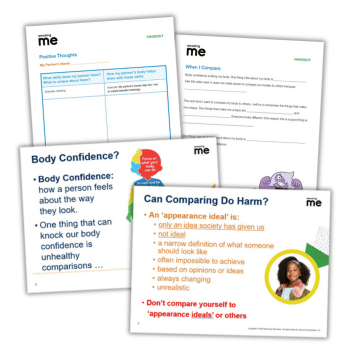4 Wellbeing Habits Teachers Should Adopt Today

Protect your mental health and make a positive impact on your students with these strategies

- by Viv Grant

Most teachers know that the best teaching happens when you are alive to your subject, fully present for the children in your class, and when you have a deep resonance and respect both for the craft and the children that you teach. That’s when the magic happens!
How we maintain our vocational vitality is fundamental to our wellbeing. It is about care of the inner self; the world of thoughts, feelings and emotions. If we are to protect our wellbeing, we must develop the habits that will sustain us for the long haul.
Habit 1: Learn to listen
To relieve the sometimes heavy burden of teaching, we all need to be listened to. Empathic listening allows a person to be listened to with ‘unconditional positive regard‘. This relates to the ability to suspend judgement, to listen in such a way that the person knows their own self-worth is not dependent on anything that they say or do.
To develop this habit, try meeting with a trusted colleague at least once a half term, more if possible. It must be someone with whom you can be completely yourself. Where possible, meet in a place where you won’t be disturbed. Take time prior to each meeting to consider your responses to the following questions:
| • | What have been the highlights of the past half term? |
| • | Why have these been significant for me? |
| • | In what way do these highlights relate to my reasons for being a teacher? |
| • | Have there been any ways in which my reasons for being a teacher have been challenged? |
| • | How have I addressed them? |
| • | What have I learnt? |
| • | How have I grown? |
| • | What are the implications for next half term? |
When it feels appropriate the person who is listening can summarise back what they have heard or ask a question, but nothing more – no anecdotes or sharing your own ‘war stories’ (as can so often be the temptation). After half an hour or so, reverse the roles. We are not used to this type of listening, but persist at it and you will hear what matters most.
This habit helps you to slow down and supports mindful enquiry. Developing your empathetic listening skills can not only help to build successful relations with students and colleagues, but will also help you to listen with greater empathy to yourself.
Habit 2: Learn to accept praise
Most teachers that I have come across are fantastic at celebrating the strengths and achievements of their students, but many struggle to accept praise that is directed at them. However, when you do this, you help to build your own levels of resilience, which arises from a strong sense of self and a grounded appreciation of your strengths and abilities.
To build this habit you need to begin by checking your thoughts. What do you say to yourself when someone says, “Well done” or “That was a great lesson”? Do you find yourself thinking, ‘They don’t really mean it’ or ‘I’m not really as good as they think I am’? Thoughts like these will only serve to diminish your resilience.
To change this pattern of thinking, simply begin by thanking whoever paid you the compliment. Don’t diminish the power of their words by saying, “It was nothing” or “It wasn’t only me.’ If they are praising you, accept it. Learn to welcome the good feelings that arise when you do.
An often-voiced fear is that accepting praise can somehow lead to arrogance. However, when you are in the service of others and rooted in your values and beliefs, accepting praise is simply another way of shoring up your roots and ensuring that your behaviours are aligned with the vision that you have for yourself and the pupils that you teach.
Habit 3: Learn to reflect
Reflection enables you to deepen your connection with your values and brings insight to both your personal and professional development. One way to support this habit is to keep a reflective journal as a way for you to process your private thoughts. Commit to writing in your journal at least once a week – the end of the week is usually the best time. Write down your responses to the following questions:
How much of myself was given expression to this week in my role as a teacher?
This question allows you to begin to discover what aspects of the role help you to be your best. This deepens your connection with your vision, passion and purpose.
Were there any circumstances which limited full expression of myself? How did I address them? What did I learn? What important aspects of me haven’t been given expression to this week?
It is all too easy for teaching to become all-consuming. This question helps you to think about meeting your needs on a holistic level. It reminds you that you have external needs, outside of your role as a teacher, that must be met for you to remain healthy. How will my reflections impact on my role in the forthcoming week?
This reflective process should create a higher level of self-awareness and could also help you to develop other habits that will bring greater balance to your life.
Habit 4: Learn self-compassion
This involves showing ourselves the same levels of kindness, love and understanding that we would display towards a friend going through hard times. When we are compassionate towards ourselves, we experience much greater degrees of happiness and wellbeing. In these present times of high levels of public scrutiny and personal accountability, it is a must for any teacher.
To develop this habit, you need to know where you are in the self-compassion stakes. Review the five questions below and using a scale of 1-10, (where 1 equals totally unable and 10 equals very able), give yourself a score.
| 1. | To what degree am I able to let go of the need to be perfect? |
| 2. | To what degree am I able to talk to myself kindly when faced with difficult emotions/circumstances? |
| 3. | To what degree am I able to silence my inner critic? |
| 4. | To what degree am I able to reach out for help and support? |
| 5. | To what degree am I able to stop comparing myself to others? |
Developing these four habits will take time. However, commitment to them will help you protect your wellbeing and increase the positive impact that you can make on the lives of those you teach.
Viv Grant is a coach, author, public speaker and director of Integrity Coaching. Previously she has worked as a primary headteacher. She Tweets at @Vivgrant.










